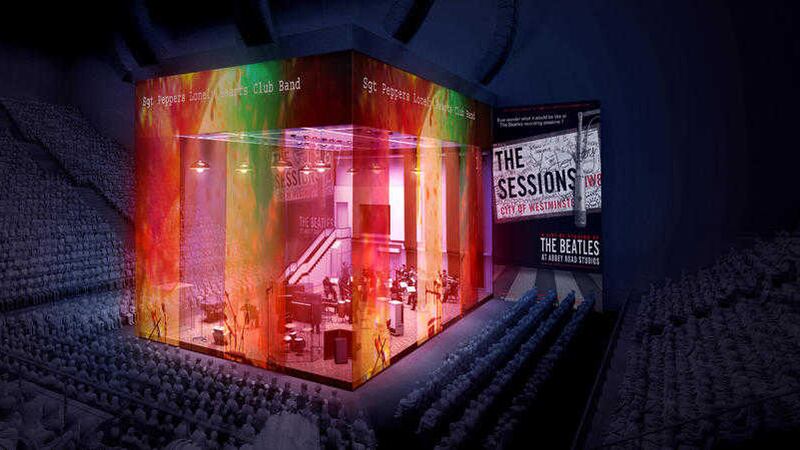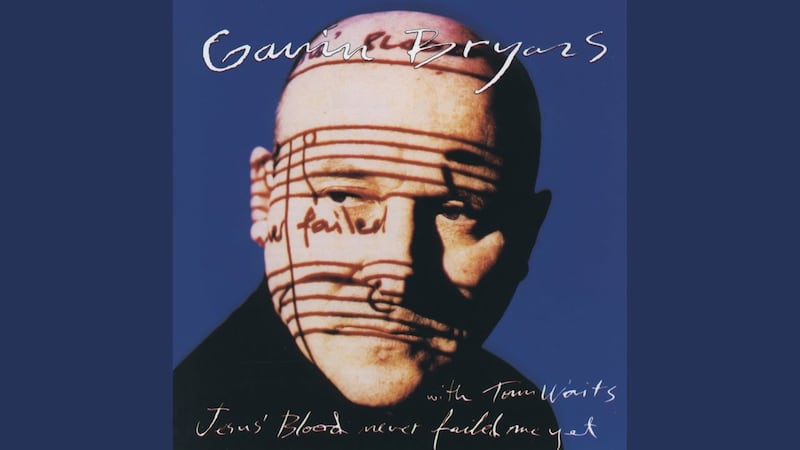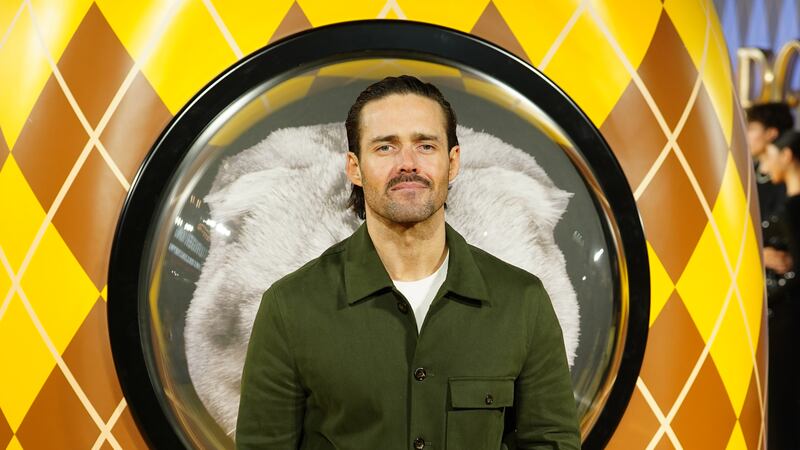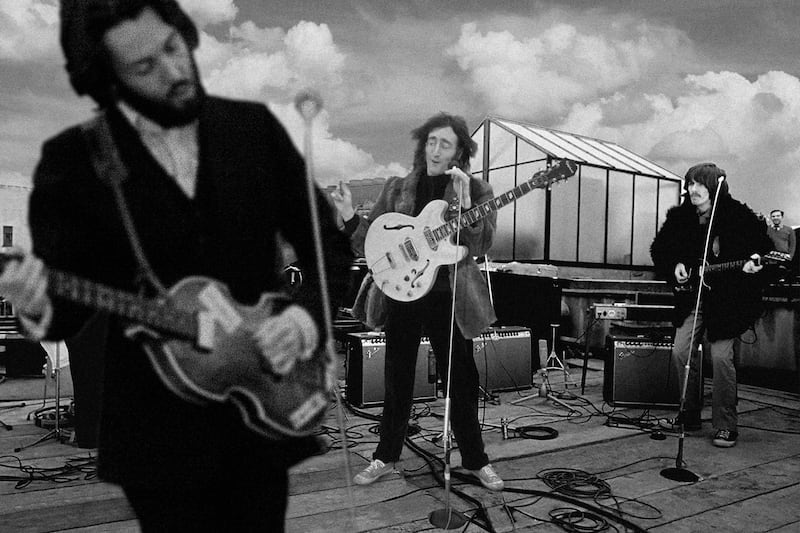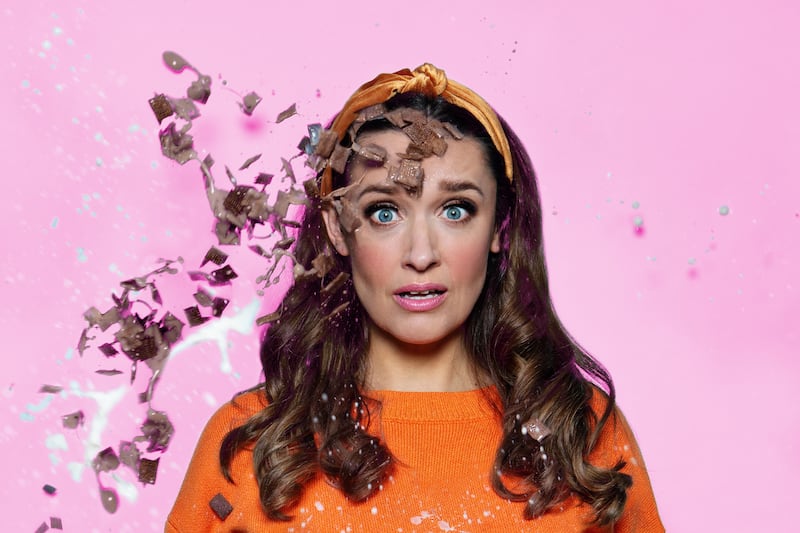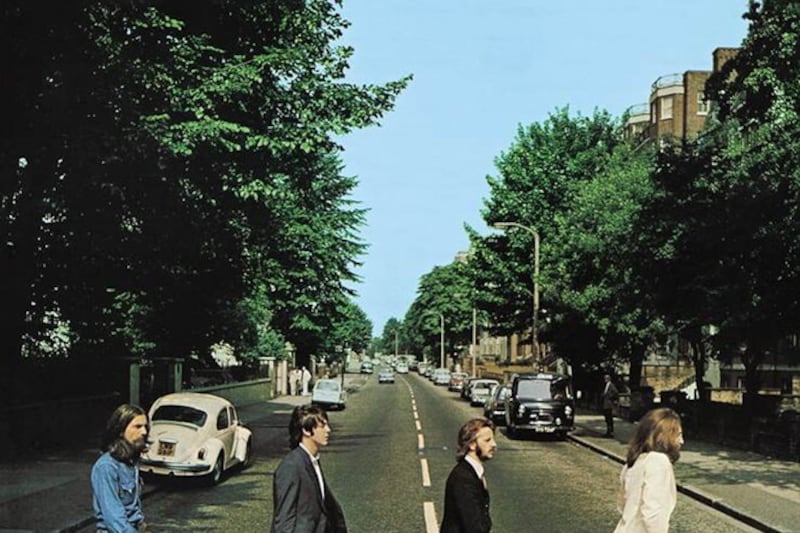IF YOU are a massive Beatles fan and have dreamed about getting the chance to see inside the famed Abbey Road Studios in London, then here is the good news: the studios are coming to you.
The Sessions: A Live Re-Staging of The Beatles at Abbey Road Studios is billed as a spectacular arena show that not only gives you a glimpse into the studio but features 45 musicians performing 12 Beatles albums that were recorded there.
The narrative is loosely based on Abbey Road sound engineer Geoff Emerick’s book Here, There and Everywhere: My Life Recording the Music of The Beatles. Emerick struck it lucky when he started work at Abbey Road aged 15 – just before the Fab Four walked through the doors and went on to change musical history.
Now based in Los Angeles, Emerick – a Grammy winner who has also worked on records by Elvis Costello, Judy Garland, The Hollies and Art Garfunkel – explains how he came to be in the right place at the right time in 1962.
“Since I was seven I wanted to be involved in the creative process of music. I wrote to Abbey Road for employment when I was 15 and got a rejection letter and then my careers officer got a phone call asking if he had anyone who'd like to work in a studio and that was me. It was serendipity.
“So I'd started work at Abbey Road, which was EMI Studios at the time, and two days later they came in for their first real recording session, to record the Mitch Murray song How Do You Do It?
“They said, 'We don't want to record other people's songs, we want to record our own songs.' I asked if I could stay in the control room because I had to learn the ropes, so I got to see all of this going on. [Producer] George Martin said, 'What have you got?' and they had a couple of tries at Love Me Do and George said, 'Let's book another session' and they came in the week after to record their songs.”
The Beatles were known for pushing the boundaries of recording, being innovative and highly original in making groundbreaking music that still sounds fresh and unique today.
But with such creative genius came the tendency to be difficult to work with in the studio. Emerick says they were 'anti-establishment’.
“There was a protocol that happened on sessions and you had to behave, but they didn't behave,” he says. “When they recorded vocals, they'd look at each other and laugh and crack jokes; they always had to be reprimanded.
“It was demanding, because they always wanted to come up with different sounds. We tried different techniques and had to abuse and overdrive and overload the equipment to try to come up with those new sounds.
“When we started Tomorrow Never Knows [for the Beatles’ 1966 album Revolver], John said he wanted his vocal to sound like 'the Dalai Lama singing on a mountain top', I thought 'How can we do that?' and then I saw the revolving Leslie speaker in the studio and thought 'I could put his voice in that' and that gave us the answer.
“Ringo wanted a different drum sound too, so we tried different things. Looking back now, Revolver changed the whole way that the world perceived recording. The drum sound inspired many of today's drummers; they had never heard drums like that before.”
Emerick singles out A Day In The Life, the epic closing track on the band’s 1967 album Sgt Pepper’s Lonely Hearts Club Band, as another personal favourite in terms of how groundbreaking it was.
“When we had recorded the orchestra part, we played back the mix that night and there were a few guests invited to the studio – the Rolling Stones and various other people. When everyone heard it, it was just mind-blowing. It was like going from a square black and white picture to cinemascope technicolour.”
Emerick says the last album he worked on with John Lennon was John Lennon/Plastic Ono Band (1970). In The Sessions show, which comes to the SSE Arena in Belfast this Sunday and the 3Arena in Dublin on Monday, there will be a Yoko Ono character in the cast.
“During the recording of Abbey Road (released in 1969), Yoko was in bed through the whole recording process, so in this show there will be a Yoko character in bed. She did actually become part of the furniture,” says Emerick.
When things got particularly difficult and tense during the recording of The Beatles (the 1968 record better known as 'The White Album’), Emerick walked out.
“It was getting pretty bad and John was being a little bit insulting, but then he said 'It's not you, please stay' and he was just kind of taking things out on me. I said I was going to leave and I did; but I went back to do Abbey Road.”
He says the audition process for The Sessions – which includes a 20-piece orchestra – took well over a year and he’s delighted with how the show has taken shape.
“We're presenting the vocals how they sounded on record. Where we double-tracked vocals in the studio, we have two live vocals doing the same part in this show.
“The double-tracking harmony stuff is just amazing, it really is. It's the first time that these songs have been performed like this in their entirety. There are about 60 songs in all.”
As the show was based on his own memoirs, there will also be an actor playing Geoff Emerick.
“When I was introduced to him, it was like 'Geoff, this is Geoff...’” he laughs. “It will be funny to see the full show because it's six or seven years of my life.
“In between the songs there's a lot of banter based on real things that the guys said, so it will be like watching the band in the studio – which it was like for me. It was hard work for me but it was fun at the same time.
“But people will come along to hear the music. It tells the story from the first Beatles songs to the end of Abbey Road. It’s really inspiring. The opening sequence alone sends shivers down my spine. People can't just walk into the real Abbey Road Studios, but this is the nearest they'll ever get to it.”
The Sessions comes to The SSE Arena in Belfast this Sunday April 3 at 8pm (doors at 6.30pm). For tickets (£35.50 to £46.50), visit www.thesessionslive.com or www.aikenpromotions.com or call 028 9073 9074. The show also comes to the 3Arena in Dublin on Monday April 4
***
COMPETITION:
Win one of three pairs of tickets to The Sessions
WE have teamed up with Aiken Promotions and the team behind The Sessions: A Live Re-Staging of The Beatles at Abbey Road Studios to give away three pairs of tickets to the show at the SSE Arena in Belfast this Sunday April 3 at 8pm. The hotly anticipated show comes to Belfast for one night only as part of a British, Irish and European tour. Doors open at 6.30pm and tickets are on sale now, priced from £35.50 to £46.50.
TO ENTER the competition, answer the following question:
Q: In what year was the Beatles album Abbey Road released?
EMAIL your answer, along with your name, address and contact number, to competitions@irishnews.com. Standard Irish News rules apply. One entry per email address.
Or to enter by TEXT, text your answer, along with your name, address and contact number, to 076 2480 2490 from the north or 004476 2480 2490 from the south. Standard network charges apply. One entry per mobile number.
All entries must be submitted (by email or text) by 12 noon tomorrow, Friday April 1.
